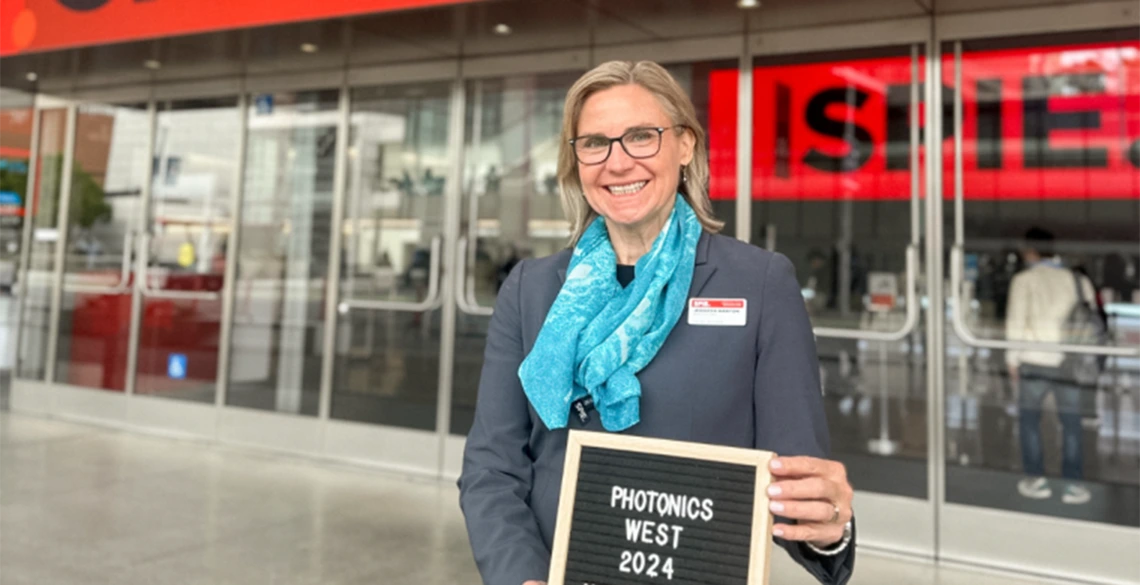BME's Jennifer Barton Embarks on Tenure as President of SPIE
The International Society for Optics and Photonics recognizes the University of Arizona’s Jennifer Barton as a leader in optical imaging and biomedical research.

No description provided
Jennifer Barton, director of the University of Arizona BIO5 Institute and Thomas R. Brown Distinguished Chair in Biomedical Engineering has officially commenced her role as the 2024 President of the International Society for Optics and Photonics, SPIE.
SPIE partners with researchers, educators, and industry to advance light-based research and technology. The Society, founded in 1955, connects and engages with its global constituency through conferences and exhibitions, publications of conference proceedings, books and journals.
Barton is celebrated for her work developing miniature endoscopes, medical devices typically used to detect abnormalities in the cells lining the gastrointestinal tract. She spent nearly a decade developing a device small enough to image the fallopian tubes – narrow ducts connecting the uterus to the ovaries – and search for signs of early-stage cancer.
Her contributions to fluorescence spectroscopy have also propelled advancements in the use of light to identify disease in soft tissue, such as optical coherence tomography. OCT is a noninvasive imaging method that uses light to aid in the diagnosis of eye diseases like retinopathy and glaucoma and has the potential to treat cancer.
Barton joins a distinguished lineage of UA faculty who have served as president for SPIE, including William Wolfe, John Greivenkamp, Eustace Dereniak, Jack Gaskill, James Wyant and Robert Shannon. This succession of accomplished leaders underscores the university's dedication to shaping the future of optics and photonics research globally.
"The University of Arizona provided me the opportunity and resources to develop optical solutions for early disease detection, working with scientists and physicians. SPIE has brought that work to an international stage through conferences, publications, and broad networking. It’s my honor to contribute to both organizations.” - Jennifer Barton

